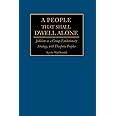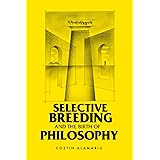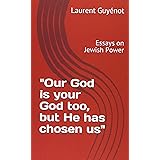
Enjoy fast, free delivery, exclusive deals, and award-winning movies & TV shows with Prime
Try Prime and start saving today with fast, free delivery
Amazon Prime includes:
Fast, FREE Delivery is available to Prime members. To join, select "Try Amazon Prime and start saving today with Fast, FREE Delivery" below the Add to Cart button.
Amazon Prime members enjoy:- Cardmembers earn 5% Back at Amazon.com with a Prime Credit Card.
- Unlimited Free Two-Day Delivery
- Streaming of thousands of movies and TV shows with limited ads on Prime Video.
- A Kindle book to borrow for free each month - with no due dates
- Listen to over 2 million songs and hundreds of playlists
- Unlimited photo storage with anywhere access
Important: Your credit card will NOT be charged when you start your free trial or if you cancel during the trial period. If you're happy with Amazon Prime, do nothing. At the end of the free trial, your membership will automatically upgrade to a monthly membership.





Download the free Kindle app and start reading Kindle books instantly on your smartphone, tablet, or computer - no Kindle device required.
Read instantly on your browser with Kindle for Web.
Using your mobile phone camera - scan the code below and download the Kindle app.

Follow the author
OK
A People That Shall Dwell Alone: Judaism as a Group Evolutionary Strategy, with Diaspora Peoples Paperback – June 6, 2002
Purchase options and add-ons
-
Print length598 pages
-
LanguageEnglish
-
Publication dateJune 6, 2002
-
Dimensions6 x 1.5 x 9 inches
-
ISBN-100595228380
-
ISBN-13978-0595228386
The Amazon Book Review
Book recommendations, author interviews, editors' picks, and more. Read it now.
Frequently bought together

Similar items that may deliver to you quickly
Editorial Reviews
About the Author
Product details
- Publisher : iUniverse; First Edition (June 6, 2002)
- Language : English
- Paperback : 598 pages
- ISBN-10 : 0595228380
- ISBN-13 : 978-0595228386
- Item Weight : 1.92 pounds
- Dimensions : 6 x 1.5 x 9 inches
- Best Sellers Rank: #90,477 in Books (See Top 100 in Books)
- #61 in History of Judaism
- #191 in Medical Social Psychology & Interactions
- #316 in Popular Social Psychology & Interactions
- Customer Reviews:
About the author

Discover more of the author’s books, see similar authors, read author blogs and more
Customer reviews
Customer Reviews, including Product Star Ratings help customers to learn more about the product and decide whether it is the right product for them.
To calculate the overall star rating and percentage breakdown by star, we don’t use a simple average. Instead, our system considers things like how recent a review is and if the reviewer bought the item on Amazon. It also analyzed reviews to verify trustworthiness.
Learn more how customers reviews work on Amazon-
Top reviews
Top reviews from the United States
There was a problem filtering reviews right now. Please try again later.
The subsequent two books — Separation And Its Discontents and Culture Of Critique — were removed from Amazon's offerings in March 2019 for violating Amazon's terms of service in regard to expressions of antisemitism. Which is odd, since the book is partly a scholarly treatment of antisemitism. And which means, of course, that they were really removed for telling too much of the truth about Jewish history and Jewish power.
On the other hand, nobody has ever succeeded in showing why antisemitism necessarily means "false." So far as anyone knows, some of the world's most important truths might be antisemitic statements.
A People That Shall Dwell Alone (subtitle: Judaism as a Group Evolutionary Strategy) was originally published in 1994 by Praeger Publishers, a respected academic publishing company that is part of the Greenwood Publishing Group.
Separation And Its Discontents (subtitle: Toward an Evolutionary Theory of Anti-Semitism) followed in 1998.
The Culture of Critique (subtitle: An Evolutionary Analysis of Jewish Intellectual and Political Movements) completed the trilogy, later in 1998.
I have copies of all three books, having bought them in 2007. These books have been around for 20 years, regarded as worthy academic contributions for most of that time, and, only now, comes a push for their censorship. I suspect that it is part of the more general censorship of the world wide web by the mainstream media and the tech companies of silicon valley.
Censorship creeps, you know. Its targets grow ever wider and farther afield from its original focus, partly because of zealotry, and partly because the focus of censorship never was intended, by the censors, to remain tight.
The Occidental Observer has remarked: "This [banning of MacDonald's books] comes only around two weeks after they banned books by Jared Taylor and Greg Johnson. This is an extension of the de-platforming from financial sites and PayPal, Patreon, Coinbase, and credit card companies that has hit pretty much all sites on the dissident right... Clearly the establishment is terrified that these ideas are gaining traction, and it illustrates once again, that the culturally dominant left cares nothing for free speech as a pillar of American civilization."
cxiv + 448pp
Not as enlightening as Separation and its Discontents or The Culture of Critique (respectively the second and third books in this series, now banned and memory holed by Amazon, along with at least 49 other 'politically incorrect' and anti-Zionist and human biodiversity titles, including Two Centuries Together: A History of the Jews in Russia, by no less a luminary than Aleksandr Solzhenitsyn himself); much of the material presented here is repeated with some alteration between those two other works (SAID has a similar focus; CofC is entirely different but must represent some of this material to frame its own arguments as a standalone work). Nonduplicated information is in the title: the suite of genetic and culture separatist strategies which comprise Judaism. Jewish eugenics is mentioned more in SAID and even 'The Bell Curve' though the theoretical basis for it and speculation as to how it formed is elucidated here.
The 2004 paperback reprint includes an additional 100+ page preface detailing other (mainly diaspora) group evolutionary strategies, such as the Spartan, Gypsy, Overseas Chinese, Amish, Mennonite, and even Puritan (!), comparing and contrasting their genetic closure, level of collectivism and authoritarianism, economic/niche specialization, parenting strategies, and typical relation to their host societies to those of the Jews.
READ THIS BOOK BEFORE AMAZON BANS IT TOO! Buy it and the second two of the trilogy somewhere else. I will add reviews of the other two books here. They are still available from Barnes and Noble. This is the best that you can get now that SAID and CofC are banned.
The fact is that the authors arguments and sources are fatally flawed in a number of important ways. He clearly has no real knowledge of primary sources and depends on Neusner for his knowledge of Mishnah and Gemara. This was a fatal mistake that caused him to be totally ignorant of the deep interconnections and structure of the texts. He regards them as largely arbitrary and irrational. A reading of Menachem Elon's masterpiece on Jewish Law would have been a very good antidote. This work has been translated into English so it should be accessible to the author.
Also his understanding of Yemen is similarly inaccurate and flawed. One can see that by reading the works of Rav Kapach. However these works only exist in Ivrit, and I believe the author is not able to read Hebrew.
Top reviews from other countries
Macdonald first explains the theories of recent physical anthropology involving inheritance of specific and general mental characteristics and of groups as instruments of evolution by which genes are shepherded through the generations.
He then interprets The Old Testament , with its genealogies, family histories and laws from a social darwinist standpoint. He next argues against the view of Judaism as a failed universal religion competing with early Christianity for converts, claiming that there are no recorded Jewish missionaries or missionary texts. Christianity draws from Jewish tradition, but its insistence on monogamy and exogamous marriage he attributes to European ethnic characteristics. He claims that Judaism is not internally egalitarian, hence a tendency for those on the lower rungs to defect to out-groups where their identity is more valued. Lastly, he outlines Jewish responses to the 'Enlightenment' which validate Jewish continuance as an ethnic group even independently of religious commitment, e.g. Reform and Orthodox Judaism and Zionism.
He draws mostly on voluminous recent American scholarship, but the result amounts to a novel philosophy of history that challenges the views of American liberals and conservatives like Francis Fukayama and Samuel Huntingdon, but reaches a similar level. Macdonald opposes the multi-ethnic vision of the USA and is nostalgic for the 1950s of his youth.
In terms of production values, I counted six typos in the introduction, the last sentence of which is ungrammatical. All in all, I found it highly readable, well argued and a worthwhile challenge to my own views.
However, Jews have a better claim than most to actually being justified in their assessment.
The impact of Jews on world history is vastly disproportionate. The two largest world religions, Christianity and Islam, both derive primarily from Judaism, and Jews are overrepresented among Nobel Prize winning scientists, leading intellectuals, celebrities, and millionaires.
However, the most remarkable achievement of Jews is their very survival as a people, despite conquest, persecution, banishment and diaspora, not to mention recent trends towards 'secularization'.
“From an evolutionary perspective,” Macdonald writes, “the uniqueness of… Jews lies in their being the only people to successfully remain intact and resist normal assimilative processes after living for very long periods as a minority in other societies” (p86).
Two groups might assert a competing claim to this mantle:
1) The Roma;
2) Upper-caste Hindus.
However, Macdonald characterizes the Brahmins as operating “a genetically fairly open group evolutionary strategy” (p25), because high-caste males could take lower-caste concubines (p31).
In contrast, for Jews, Macdonald claims, all sexual contact with gentiles was proscribed (p58-9).
However, other biblical passages envisage the concubinage of foreign women (e.g. Deuteronomy 20:14; Numbers 31:18).
Cultural Group Selection
In 'A People That Shall Dwell Alone' (PTSDA), Kevin Macdonald explains Jewish survival and success through a theory of cultural group selection.
His theory is not strictly sociobiological. Macdonald has in mind, not biological, but cultural evolution.
We might then characterise it as a 'memetic' theory, in accordance with Richard Dawkins’ concept of 'memes' as units of cultural evolution. PTSDA is a work, not of evolutionary psychology, but of ' Memetics '.
Dawkins famously described religions as ' Viruses of the Mind ' that infect human hosts much like biological viruses (Dawkins 1993).
The success of a religion, then, depends on its 'infectiousness'. This, in turn, depends on the behaviours that the infection induces.
Viruses produce symptoms like coughing and sneezing precisely because these help the parasite infect new hosts via the bodily fluids expelled.
Successful religions similarly produce behaviours that promote their spread. Christians are admonished to 'spread the gospel' among heathens, and Muslims to wage 'holy war' against infidels. These behaviours promote the spread of Christianity and Islam just as surely as sneezing facilitates the spread of flu.
In contrast, Macdonald quotes Richard Alexander as citing the 'Shakers', an eighteenth-century Christian sect, as an example of a religion which, because of its precepts (celibacy), died out (p8).
However, a small Shaker community does survive in America, because, although celibate, they did proselytize.
In contrast, a religion eschewing both reproduction and proselytism would probably never spread beyond its original founders and hence never come to the attention of historians in the first place.
A 'Closed Strategy'
The group evolutionary strategy represented by Judaism differs somewhat from that of Islam and Christianity. Unlike other Abrahamic faiths, Judaism adopted what Macdonald calls a 'closed strategy'.
Whereas Shakers renounced reproduction but practised proselytism, Jews did the opposite.
They are admonished by scripture to 'be fruitful and multiply' (p51-4), marry within the faith (p54-62) and indoctrinate offspring as believers (p326-335). However, Jews do not proselytise and intermarriage is forbidden (e.g. Deuteronomy 7:3; 1 Kings 11:1-13).
It is sometimes claimed that Judaism was once a proselyting religion. However, Macdonald dismisses this as “apologetics”, designed to enable Judaism to compete against the universalism of Hellenism and, later, Christianity (p92).
Macdonald characterizes the Jewish strategy as: “Allow converts and intermarriage at a formal theoretical level, but minimise them in practice” (p97).
Thus, Rabbinic attitudes towards proselytes fluctuated from ambivalent to hostile. Prospective converts are turned away three times, required to devote considerable effort to religious study, and undergo circumcision.
However, Israelites did forcibly convert conquered groups (e.g. Gallileans and Nethinim).
However, converts faced systematic discrimination and were genetically quarantined from the core Jewish population through marriage prohibitions, which remained in force for many generations, until all evidence of alien origins had been forgotten – an especially long time given the Jewish practice of maintaining genealogies (p91-113).
“Racial Purity”
Macdonald repeatedly refers to Judaism as designed to preserve the “racial purity” of the group, this very phrase, or variants, being used by Macdonald on over twenty pages.
Thus, it was, Macdonald claims, perceived racial impurity, not theological differences, that explained the split with the Samaritans (p59).
“Racial Purity” is a phrase more associated with Nazis than Jews. However, according to Macdonald, this is no accident.
“Powerful group strategies,” he writes, “tend to beget opposing group strategies that in many ways provide a mirror image of the group which they combat” ( Separation and Its Discontents : pxxxvii). Thus, “National Socialism is a true mirror-image of Judaism” (Ibid: p133), since both place “great emphasis on racial purity and on the primacy of group ethnic interests” and “were greatly concerned with eugenics” ( Separation and Its Discontents : p194).
Genetics
In PTSDA, Macdonald relies on indirect phenotypic indicators of genetic distance (i.e. blood-groups, fingerprint patterns) to assess how successful the Jews had been in reproductively isolating themselves from host populations (p34-40).
Now, however, a huge amount of genetic data has become available. In general, this has confirmed Macdonald's conclusions regarding:
1) The Middle Eastern origins of Jews; and
2) The affinities among widely dispersed Jewish populations – Ashkenazi, Sephardic, Mizrahi, even Lemba (but not Ethiopian Jews).
Albeit with one major proviso – namely, Ashkenazim trace a substantial part of their ancestry to Southern Europe (Atzmon et al 2010), seemingly from Jewish men taking Gentile wives (Costa et al 2013).
Economic Success
Macdonald identifies various elements of the Jewish 'group evolutionary strategy' that have enabled them to repeatedly economically outcompete host populations.
These include:
1) Collectivism;
2) Emphasis on education and high-investment parenting (e.g. the stereotypical Jewish mother);
3) Intelligence.
Collectivism
Macdonald characterizes Judaism as 'hyper-collectivist', in accordance with the distinction between collectivist and individualist cultures formulated by Harry Triandis .
Partly this reflects their Middle Eastern origins, where, Macdonald contends, all groups are relatively collectivist.
However, Jews were, he claims, long recognised as especially group-oriented even compared to other Middle Eastern groups.
Thus, “Jews alone of all the subject peoples in the Roman Empire engaged in prolonged, even suicidal wars against the government in order to attain national sovereignty” and, therefore, “only… Jews, of all subject peoples were exempt from having to sacrifice to the Empire’s Gods, and… were… allowed its own courts and… ex officio government (p357-8).
This tendency towards ethnocentrism was augmented through endogamous and consanguineous marriage, which increase the level of relatedness among individuals, facilitating cooperation and trust.
As evidence of clannishness, Macdonald cites the 'double-standards' imposed by Judaic law.
The most famous example concerns 'usury'. Whereas Christians were forbidden outright to lend money at interest, Jews interpreted the same biblical passages as forbidding only the lending of money at interest to other Jews. Ironically, this double-standard actually benefited its ostensible victims, since it gave Jews an incentive to lend money to Gentiles in the first place.
Other prohibitions evinced greater economic understanding. Thus, Jews were not permitted to encroach upon the monopolies of other Jews, or undercut Jews, but only if the customers were Gentile – if the customer-base was Jewish, then competition was free to benefit consumers (p227-230).
Although these double-standards were tempered from the Medieval period, this too was done in the interests of Jews themselves, to avoid inciting antisemitism (p229).
Collectivism and Capitalism
Ironically, the Jewish tendency towards collectivism gave them a particular economic advantage in quintessentially individualist Western capitalist economies.
In game theory, a population composed of individualists, with no preference for one trading partner over another, is vulnerable to invasion by a collectivist invader with strong in-group bias.
Thus, Macdonald notes, “Jewish economic activity has historically been characterized by high levels of within-group economic cooperation and patronage”, with “Jewish elites overwhelmingly tend[ing] to employ other Jews in their enterprises”, as well as “the importance of highly placed courtiers in the general fortunes of the entire Jewish community” (p220).
Both kinship ties which crossed international boundaries, and a common language (Yiddish), meant that business links and lines of credit crossed international boundaries, giving Jews an advantage in an already increasingly globalized economy.
Middleman Minority?
Jews are the quintessential middlemen minority, acting, not only as economic middlemen, but also as intermediaries between subjects and rulers.
For Macdonald, “the prototypical Jewish role as an instrument of governmental oppression has been that of the tax farmer”, collecting taxes on behalf of a ruler (p175).
Jews’ status as endogamous aliens preadapted them for this role – “precisely because their interests, as a genetically segregated group, were maximally divergent from those of the exploited population”, they would have “no kinship ties (and thus no loyalty) to the people who were being ruled” and could therefore be entrusted to extract maximum revenue with all necessary ruthlessness (p172).
“The archetype of the well placed courtier who helps other Jews, while oppressing the local population, is”, Macdonald observes, Joseph in the Old Testament, who, by building up stockpiles of grain and selling it back to the Egyptians, ultimately reduced the latter to bondage (p175; Genesis 47:13-21).
Thus, while the masses resented Jews, the ruling class acted as patrons and protectors.
However, protection could only go so far, and Jews also served another function for elites as scapegoats. Macdonald quotes Hubert Blalock as observing “the price the [middleman] minority pays for protection in times of minimal stress is to be placed on the front lines of battle in any showdown between the elite and the peasant groups” (p173).
Jews' IQs?
Macdonald estimates the Ashkenazi IQ at around a standard deviation above the white gentile mean – i.e. 15 IQ points, equal to the difference between white and black Americans.
However, despite the ' the g factor ', he reports a massive difference in the verbal and performance IQs of Jews, with the latter around the European average but the former some two standard deviations higher.
This may explain the lack of famous Jewish engineers and architects, and why “Jewish economic activity… tended not to be characterized by technological innovation related to mechanical abilities”, lending superficial credence to the anti-Semitic charge that “Jews were not innovators, but only appropriated the innovations of others” (p291).
Regarding the cause of Jewish intelligence, Macdonald observes that wealthy Jews generally had more surviving offspring than poor Jews and infers that this would produce an increase in intelligence levels, because wealth is correlated with IQ (p285-6).
However, this was surely true among all ethnic groups prior to recent times. The rich had more surviving offspring simply because they could afford to feed more offspring.
However, wealth may have been especially correlated with IQ among Jews, because most were concentrated in occupations requiring greater intellectual ability (e.g. moneylending).
Poor Jews, meanwhile, were sometimes forbidden from marrying.
They were also victims of substantial discrimination, which, he infers, may have motivated them to abandon Judaism, raising the IQ of the remaining population.
However, he provides no hard data showing that poor Jews did indeed abandon Judaism in greater numbers – and Jewish charity may have disincentivized defection (p312-9).
More plausible is Macdonald's claim that Jews low in the personality factor known as 'conscientiousness' may have been prone to abandon Judaism, because they lacked the self-discipline to comply with the incredible ritual demands Judaism imposed on adherents (p312-9).
Macdonald also attributes the higher average IQ of Jews to "eugenics", citing various Rabbinic quotations regarding the desirability of marrying the daughter of a scholar, or marrying one’s daughter to a scholar (p275-88).
In contrast, celibacy was imposed on many Christian religious scholars (i.e. monks, priests). As Galton surmised, this may have had a dysgenic effect on Christian IQs.
Of course, today, religious studies is not an intellectually respected field. Richard Dawkins even disparaged theology as “not a real subject at all”.
However, in the past, theology may have been the only form of scholarship it was safe for Jews, Christians or even closet atheists to undertake. Anyone investigating more substantial matters (e.g. whether the Earth orbited the Sun or vice versa) was in danger of being burnt at the stake if he reached the wrong conclusion (i.e. the right conclusion).
The theory that the fecundity of Jewish religious scholars, as contrasted with the celibacy demanded of priests/monks, played a role in selecting for increased intelligence in Jewish populations cannot therefore be discounted.
Priestly Privilege
Macdonald describes the special status accorded the Tribe of Levi, and the priestly Kohen line, as "from an evolutionary perspective… a masterstroke because it resulted in the creation of hereditary groups whose interests were bound up with the fate of the entire group" (p385).
He concludes, “the presence of the priesthood among the Babylonian exiles and its absence among the Syrian exiles [the 'lost tribes']… may explain why the latter eventually became assimilated and the former did not" (p394).
However, one could just as plausibly contend that this arrangement, especially the hereditary right of the Kohaním to payment, would produce resentment in other tribes and hence division.
Conscious Design or Random Mutation?
In biological evolution, adaptions emerge without conscious design, through random mutation and selection.
However, Macdonald invokes conscious design to explain the genesis of the Jewish group evolutionary strategy.
Moses, he concedes, like Lycurgus of Sparta, was probably mythical. However, the systems developed in their respective names “have all the appearance of being human contrivances” (p395).
Indeed, rather than a single author, the Jewish strategy was “so successful… precisely because crucial aspects of the strategy were continually changed… to meet current contingencies” (p396).
Thus, he observes, Jewish writings authored in Exile extol very different traits than the martial values celebrated in the Books of Deuteronomy and Joshua, the latter authored when the Jews were, if not independent, at least still resident in Palestine; while the rise of Zionism and Israel presaged the return to martial values (p318).
In proposing that the Jewish evolutionary strategy was consciously designed by its formulators, Macdonald credits the authors of the Biblical texts with remarkable judgement and foresight.
It also casts them in the role of a sort of metaphoric pre-modern 'Elders of Zion'.
This suggests that Macdonald's thesis comes close to a conspiracy theory.
Cultural or Biological Evolution?
Since Judaism represents a 'Closed Group Strategy', it has as its effect, not only the survival of Judaism, but also the survival of Jewish genes, and Macdonald repeatedly refers to the strategy as functioning to do precisely this.
Sometimes, this makes Macdonald’s theory read more like a theory of biological evolution than of cultural evolution and could cause confusion. Indeed, I suspect Macdonald has managed to confuse himself.
In his opening chapter, he writes, “a group strategy does not require a genetic barrier between the strategizing group and the rest of the population” and, “strategizing groups can range from complete genetic segregation from the surrounding population to complete panmixia” (p15; p27).
However, Macdonald later writes, “in order to qualify as an evolutionary strategy, genetic segregation must be actively maintained by the strategizing group” (p85).
This suggests that 'Open Strategies' like Christianity and Islam cannot qualify as 'Group Strategies' and hence reduces the applicability, and usefulness, of the concept.
Culture of Critique
This confusion carries over into The Culture of Critique , a sequel to the present work, where Macdonald envisages secular scholars of Jewish ethnicity, including Marxists, psychoanalysts and cultural anthropologists, as continuing to pursue a Jewish 'group evolutionary strategy' even though they have long previously abandoned the religion in whose teachings this 'group evolutionary strategy’ is ostensibly contained.
But, if this strategy is encoded, not in Jewish genes, but in the teachings of Judaism, how then can secular Jews, some having abandoned the religion of their forefathers, and some, brought up in secular households, never having been exposed to it in the first place, continue to pursue this strategy?
'The Culture of Critique' is, then, fundamentally theoretically flawed at inception.
In contrast, PTSDA represents a tenable and, in some respects persuasive theory in explaining the survival and success of the Jewish people over the centuries, and it is regrettable that its reputation of PTSDA has been overshadowed by Macdonald’s more recent work and political activism
References
Atzmon, Gil et al (2010) Abraham's Children in the Genome Era: Major Jewish Diaspora Populations Comprise Distinct Genetic Clusters with Shared Middle Eastern Ancestry. American Journal of Human Genetics 86(6):850 - 859
Cochran, Hardy and Harpending (2006) Natural history of Ashkenazi intelligence. Journal of Biosocial Science 38(5):659-93.
Costa et al (2013). "A substantial prehistoric European ancestry amongst Ashkenazi maternal lineages". Nature Communications. 4: 2543.
Dawkins (1993) “Viruses of the Mind,” in Bo Dalhbom, ed., 'Dennett and His Critics: Demystifying Mind' (Cambridge, MA: Blackwell, 1993).










